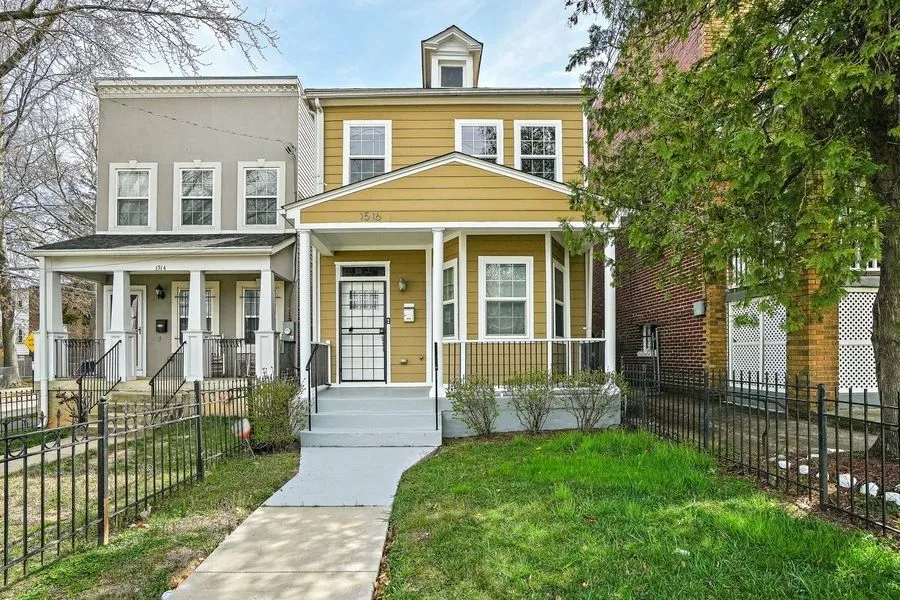7 Tax Benefits of Owning a Rental Property in Washington, DC
Nest DC
Owning a rental property in Washington, DC, can be a lucrative investment, especially when considering the numerous tax benefits it offers. This article will explore some of the key tax advantages that come with owning a rental property in the nation's capital, making it an attractive option for potential investors.

1. Mortgage Interest Deduction
One of the most significant tax benefits of owning a rental property is the ability to deduct mortgage interest. Landlords can deduct the interest paid on their mortgage from their taxable income, reducing their overall tax liability. This deduction applies to mortgage interest on rental properties, as well as other loans taken out to improve the property.
2. Depreciation
Depreciation is another crucial tax benefit for rental property owners. The Internal Revenue Service (IRS) allows landlords to deduct the cost of the property over a specific period, typically 27.5 years for residential properties. This deduction accounts for the wear and tear on the property over time, reducing the taxable income and providing a substantial tax break for property owners.
3. Property Tax Deduction
Rental property owners in Washington, DC, can also deduct property taxes paid on their investment properties. This deduction helps offset the costs associated with owning and maintaining a rental property, ultimately lowering the tax burden for landlords.
4. Repairs and Maintenance
Landlords can deduct the cost of repairs and maintenance for their rental properties. This includes expenses for fixing broken appliances, repainting, or any other necessary upkeep to maintain the property in good condition. This deduction helps property owners recoup some of the costs associated with maintaining their investment properties.
5. Travel Expenses
If a landlord needs to travel to and from their rental property for management purposes, they can deduct travel expenses, such as mileage or airfare. This deduction can be especially beneficial for out-of-state property owners who need to visit their rental properties regularly.
6. Pass-Through Deduction
The Tax Cuts and Jobs Act of 2017 introduced a new tax benefit for rental property owners: the pass-through deduction. This allows landlords who operate their rental properties as pass-through entities, such as sole proprietorships, partnerships, or S corporations, to deduct up to 20% of their qualified business income. This deduction can significantly reduce the tax burden for rental property owners.
7. Capital Gains Tax Advantages
Another tax benefit for rental property owners in Washington, DC, is the favorable treatment of capital gains. When a rental property is sold, the profit made from the sale is subject to capital gains tax. However, there are ways to minimize or defer this tax burden.
- Long-Term Capital Gains
If a rental property is held for more than one year before being sold, the profit is considered a long-term capital gain. Long-term capital gains are taxed at a lower rate than short-term capital gains, which are taxed as ordinary income. For most taxpayers, the long-term capital gains tax rate is either 0%, 15%, or 20%, depending on their income. This reduced tax rate can result in significant tax savings for property owners.
- 1031 Exchange
Rental property owners can also take advantage of a tax-deferral strategy known as a 1031 exchange. This provision allows investors to defer paying capital gains tax on the sale of a rental property if they reinvest the proceeds into a similar property within a specific time frame. By reinvesting the profits into another property, landlords can defer paying capital gains tax and continue to grow their investment portfolio.
In conclusion, owning a rental property in Washington, DC, offers a multitude of tax benefits that make it an attractive investment opportunity. These advantages include mortgage interest deductions, depreciation, property tax deductions, deductions for repairs and maintenance, travel expense deductions, the pass-through deduction, and favorable capital gains tax treatment. By strategically utilizing these tax benefits, landlords can maximize their returns on investment, making rental properties in the nation's capital an appealing option for potential investors
For more real estate investing content, we suggest you check out our article about avoiding rental application scams.









